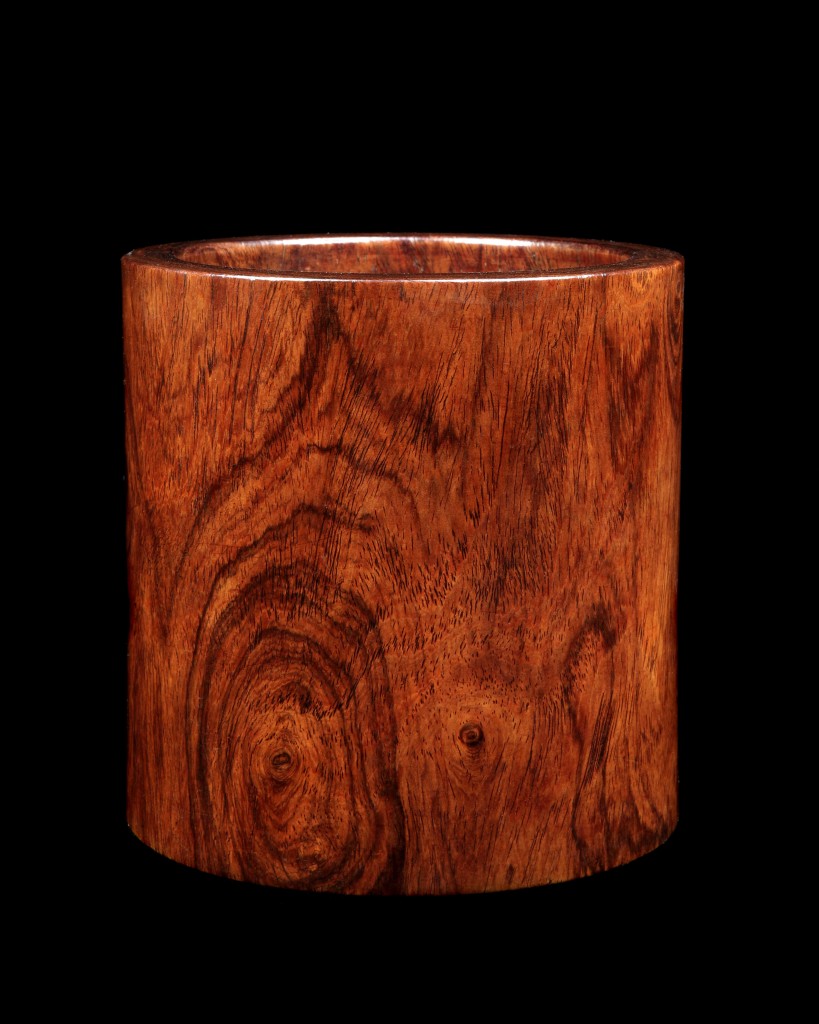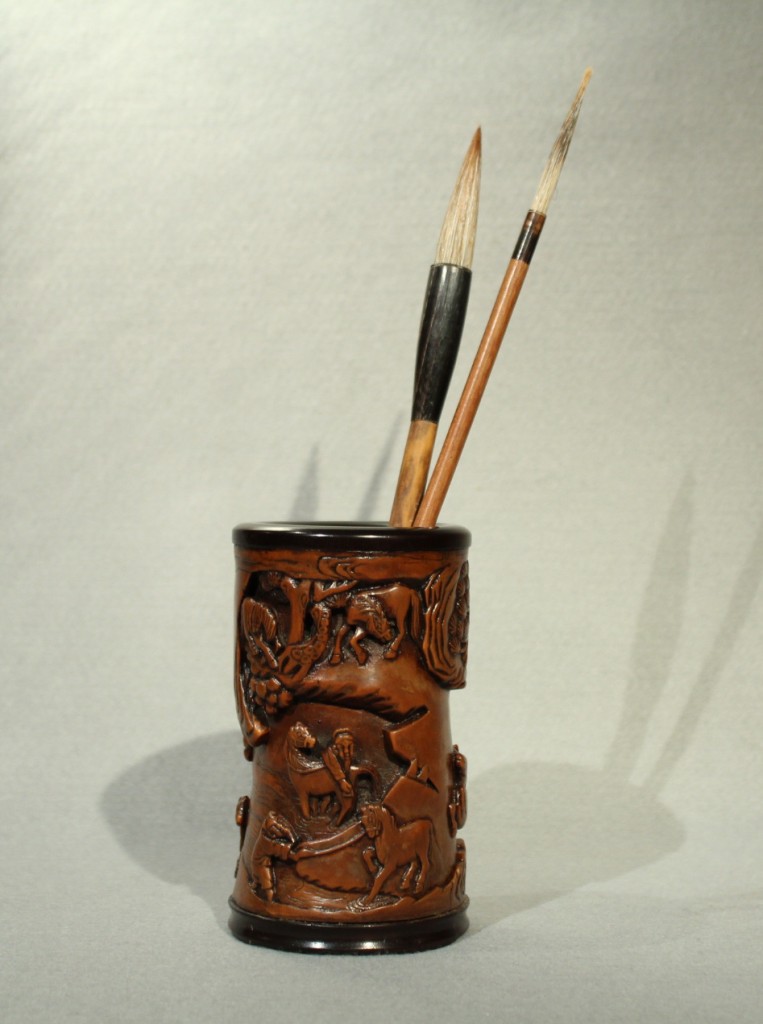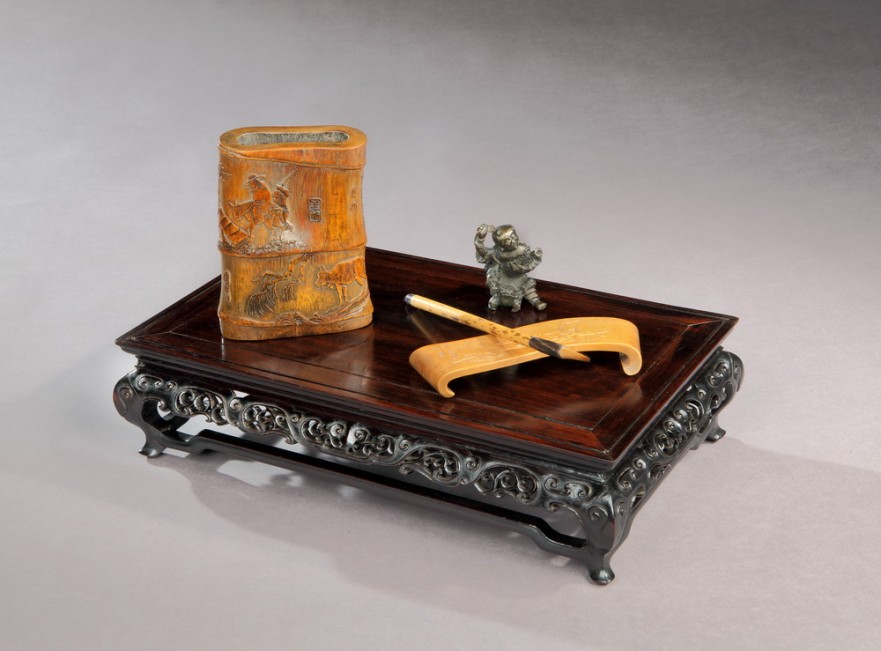Chinese Brush Pots
A Chinese scholar possessed ‘Four Treasures’: a brush, ink, paper and ink stone, essential for practicing calligraphy and painting. Many other objects would be found on a scholar’s desk, which were used for writing and painting but also for activities such as drinking tea. Besides, Chinese scholars were often collectors of functional and inspirational objects which if they were small enough could decorate their desks.
In his ‘Vessels for the Studio’ Tu Long (1542-1605) listed as much as 45 different scholars’ objects, amongst which brush pots, seals, water droppers, wrist rests, scroll holders, paper weights and the less expected meditation lamps, evil-warding mirrors, rocks and swords. The objects were used for study, contemplation and stimulated social discourse.
Brush pots made of valuable materials and with elegant embellishments were held in great reverence. Together with wrist rests they were often made of bamboo, making use of a natural curvature, but also of wood, porcelain, lacquer and jade. Natural materials and themes were most appreciated by scholars. Brush pots were decorated with scenes of literati subject matters, inscribed with poetry and marked with the seals of their makers, not unlike paintings. They were sometimes kept bare so as to emphasise their natural and sometimes unusual forms.

Precious hardwoods such as huang huali or zitan were admired for their exquisite grain but were sometimes carved to imitate humbler materials such as bamboo or gnarled root, because scholars were not meant to be interested in monetary value; on the contrary they aspired to escape mundane concerns.
中国笔筒
中国古代文人书写绘画所用的笔墨纸砚被称为文房四宝。许多在书桌上可以看到的文具器物也可以用于饮茶等其他活动。除此以外,文人们也常常收集细致精巧的摆件来装饰自己的书桌。明代屠隆在他的《考槃余事》中记载了具有代表性的四十五种文房器玩, 其中有笔筒,印章,水注,臂搁,画筒,镇纸,以及不常见的禅灯,辟邪镜,赏石,与裁刀。这些文具既可用于读书写字,也可用作思考或文人交际时的器物。

文人崇尚材料珍贵雕琢优美的笔筒。用自然弯曲的竹,红木,瓷器,漆器与玉所做的臂搁也收到青睐。文具的自然材质与母题是文人墨客们最欣赏的。文人场景主题常常用装饰笔筒,并与书画一样附上诗文与作者的印章,但也有时候被刻意不加修饰,以凸显它们的自然或特殊的形态。珍贵的木质,例如黄花梨与紫檀因为它们的美丽的纹路而具有极高的吸引力,有时候它们却会被雕刻成普通的物品例如竹子与粗糙的树根,因为文人并不在意它们的价值,相反他们更渴望摆脱世俗的心态。
Rosalie Fabre

